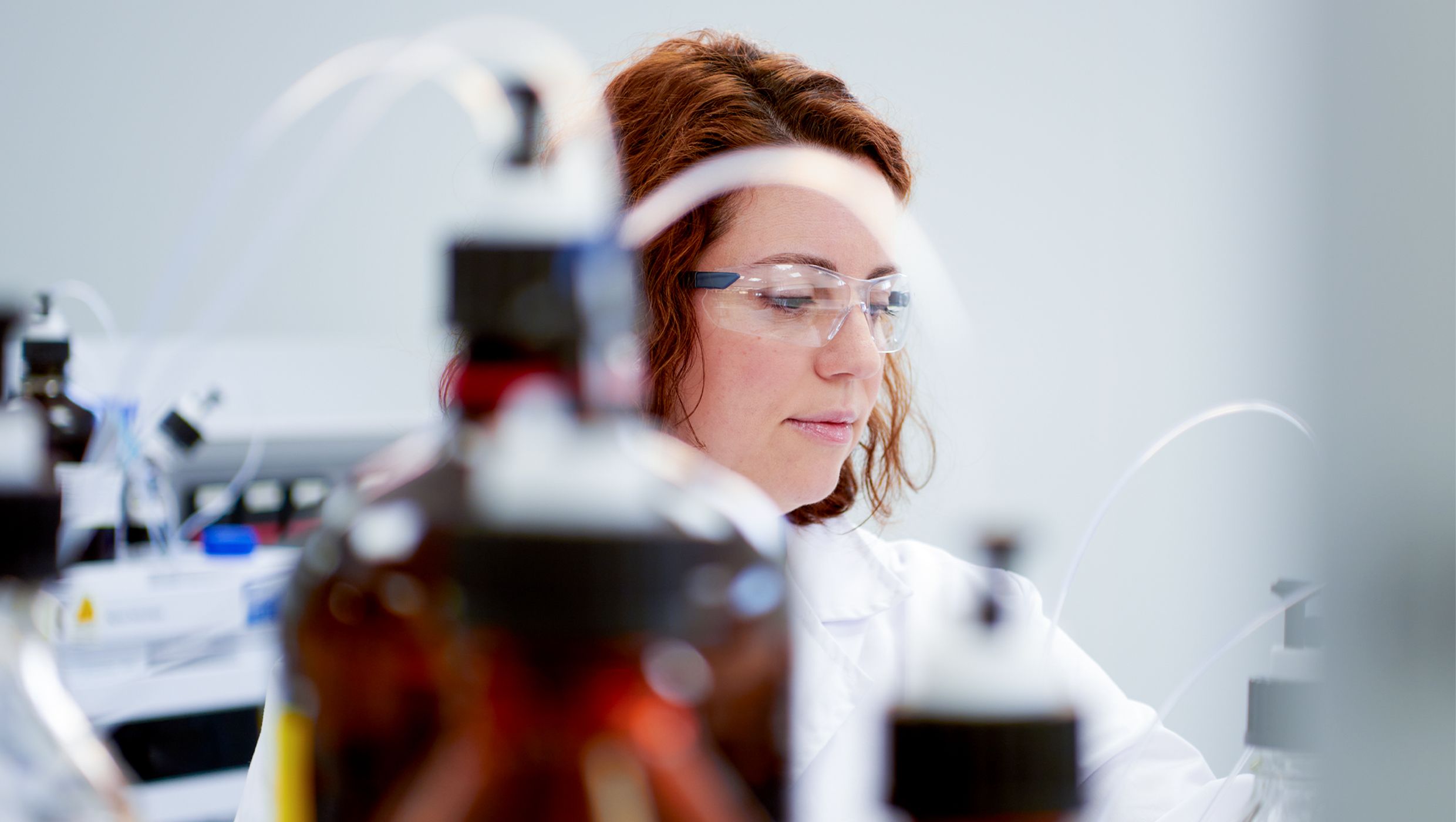Enhancing the sustainability of API production through distillation
At Siegfried, we use our expertise in process optimization to render API production more sustainable. Distillation is one way we achieve our goal.
Most of the APIs manufactured at Siegfried are isolated as crystalline solids and then formulated into drug products. During the reaction step, the API is dissolved in the reaction matrix and must be isolated as a crystalline product. A series of process steps are required to obtain the isolated product, typically involving extraction, distillation, crystallization and filtration.
The distillation step, a common method for separating chemical compounds, is often long and thermally intensive. This can result in product degradation and yield losses. With increasing inefficiency and resource use, the sustainability of the process also decreases. To address these limitations, we can optimize the distillation step with the help of subject matter experts and computer simulations. We can also substantially reduce solvent use by selecting the right distillation equipment and conditions.
Many APIs are unstable and thus unsuitable for standard distillation. Continuous distillation can be applied in these cases, as it minimizes the residence time at elevated temperatures — a few minutes compared with several hours for standard batch distillation. Therefore, we decrease product degradation and increase quality, yield and efficiency. Distillation also helps us minimize waste. For instance, water can be distilled from organic waste and transferred to a water treatment plant, reducing the amount of waste sent to incineration. Furthermore, distillation can be used to recycle organic solvents. We extensively recycle solvents with this method for our large-volume products and plan to expand it.
Sustainability is one of Siegfried’s five corporate values. To improve API production’s sustainability, we continue to apply distillation for process optimization and minimizing waste.

